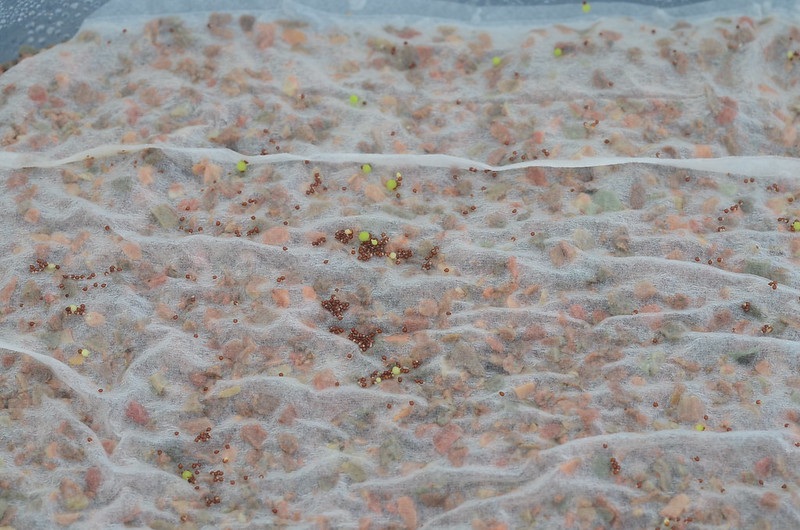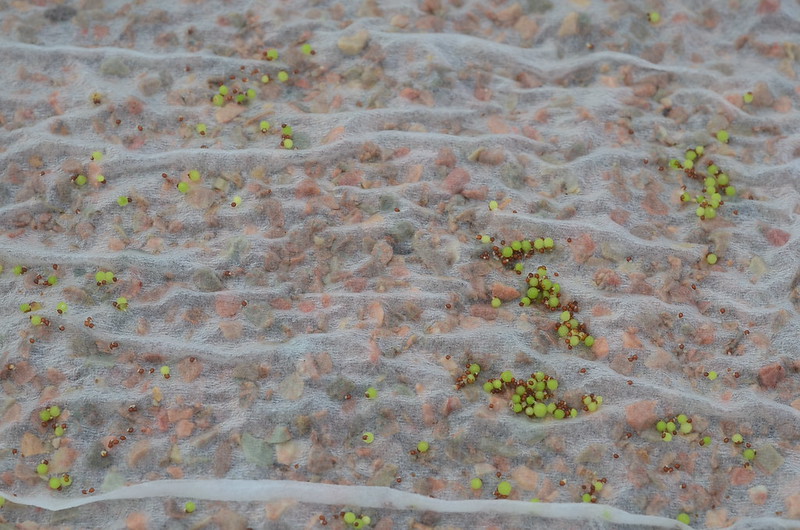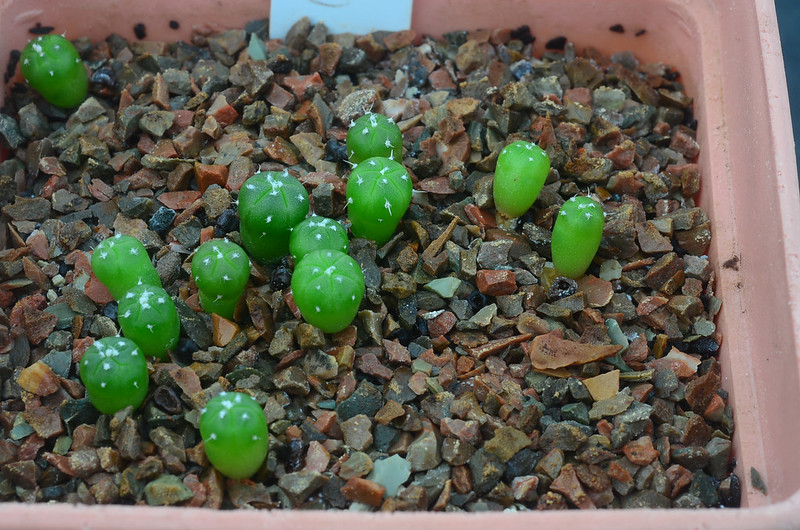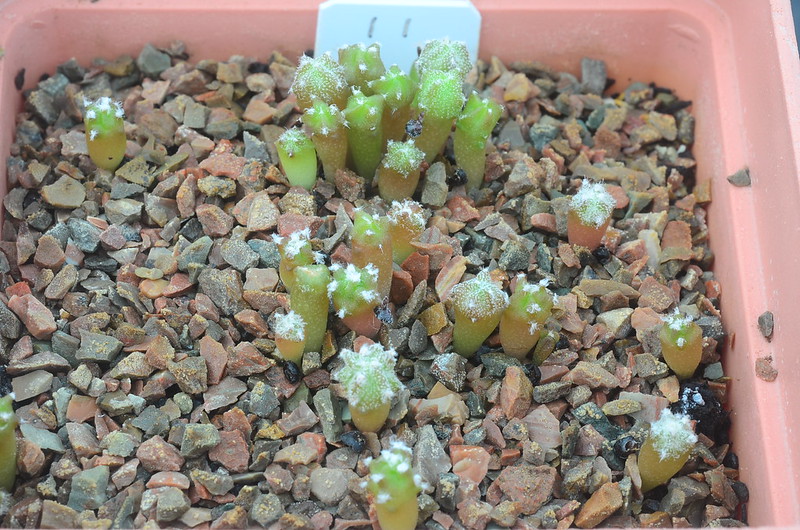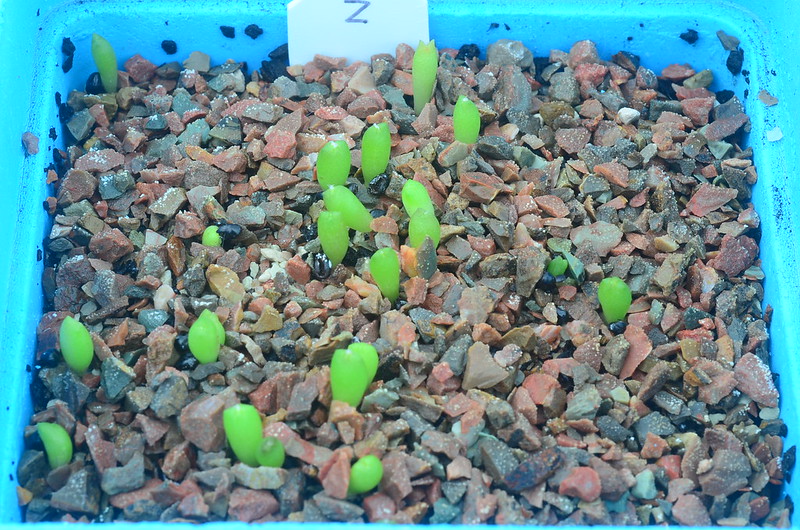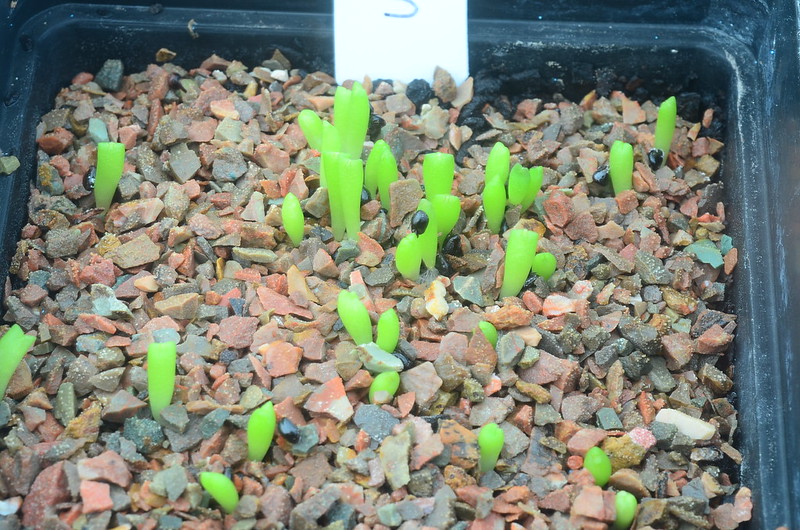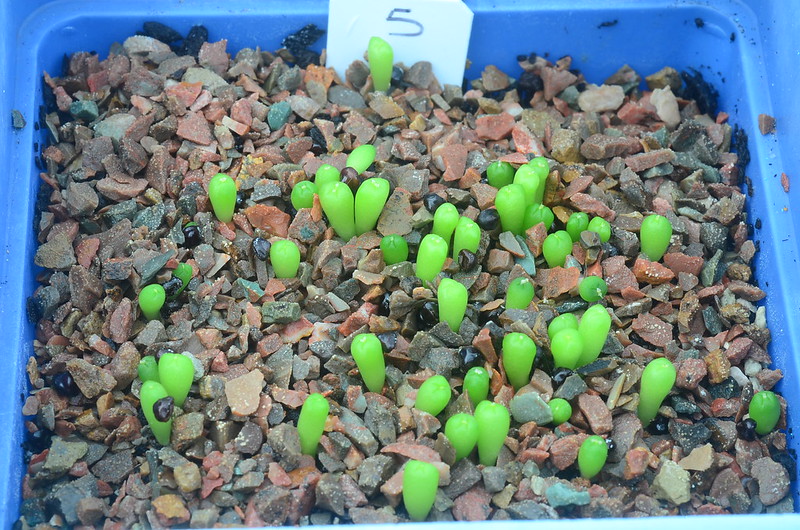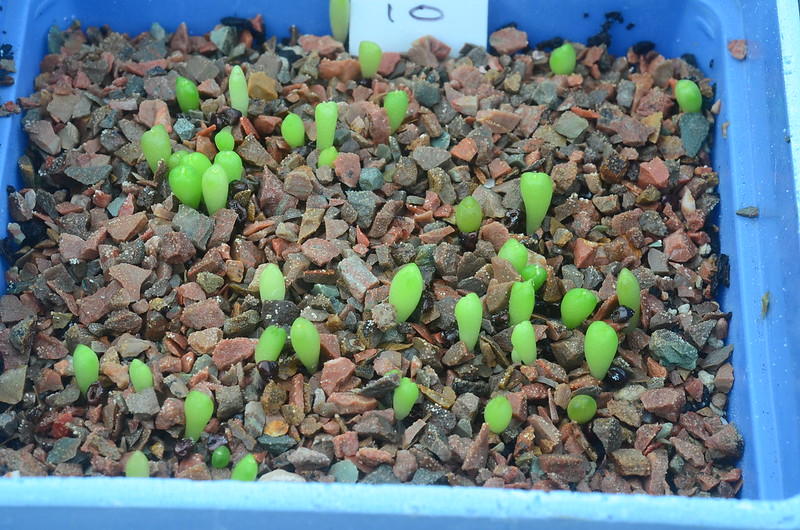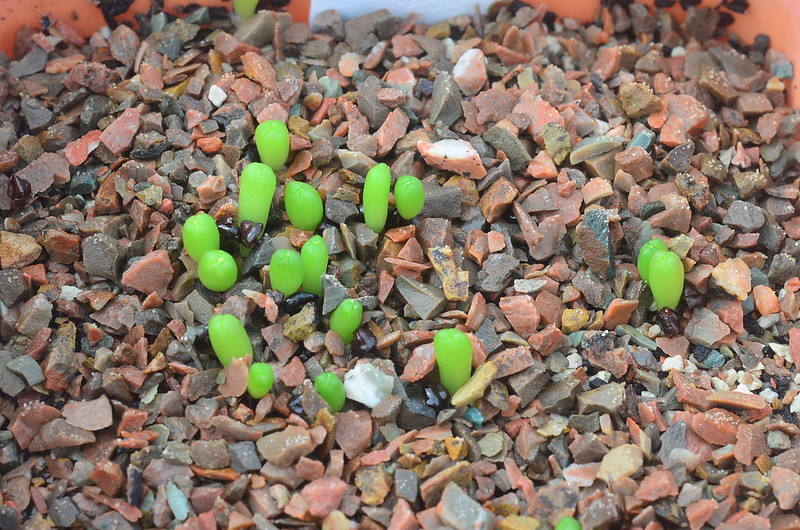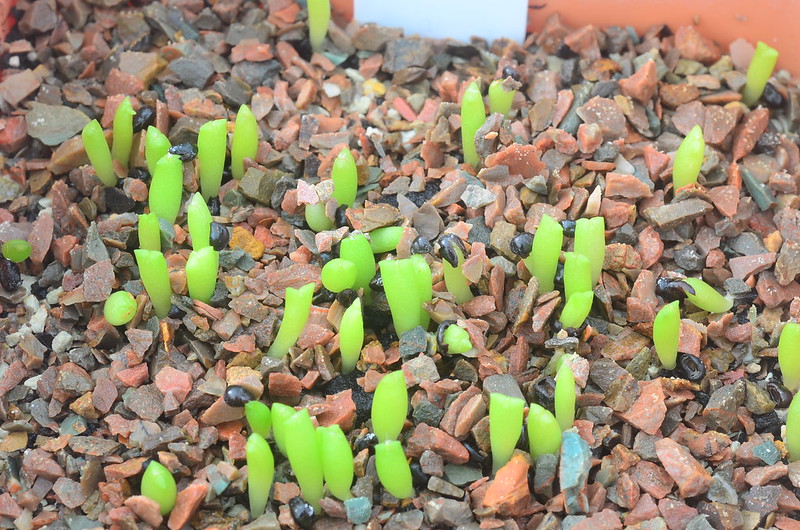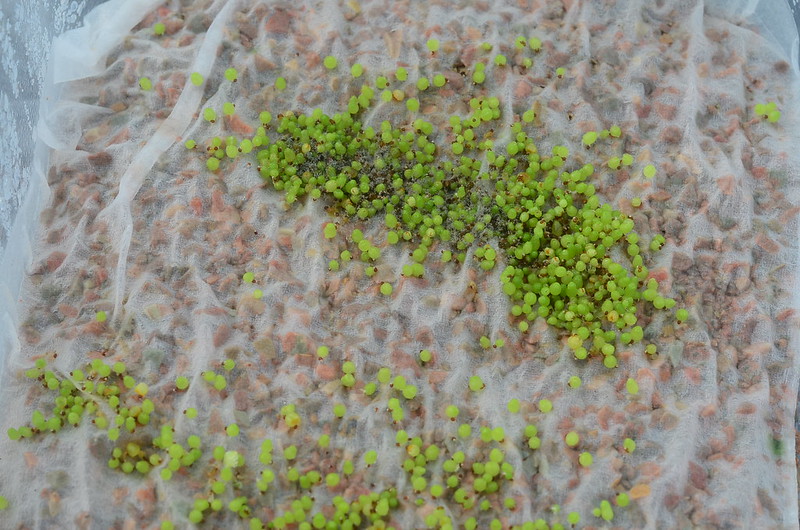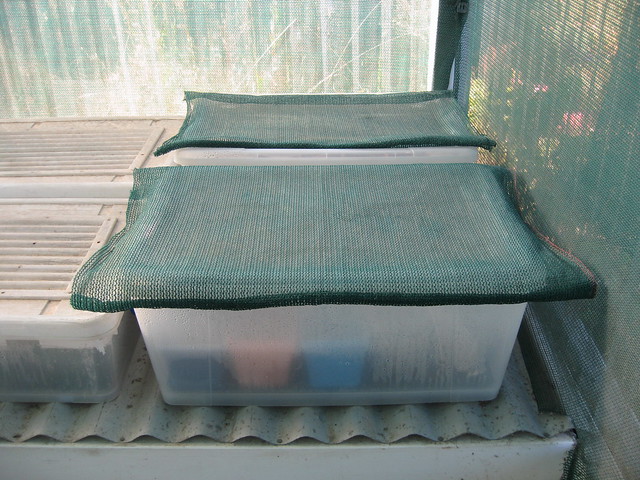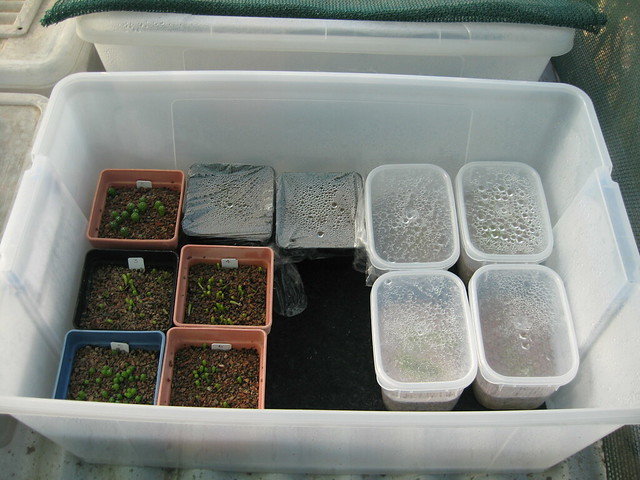G'morning Dave,
I found an article described about Ariocarpus seedlings on a Japanese website 15 years ago.
It said they changed 2 things and "propagation of Ariocarpus from seed" became easier.
Changing 1: Sand base substrate was changed to Akadama tuchi.
This changing could make less death of seedlings from rotting.
Akadama tuchi is weathered volcanic rock, a permeable material.
Changing 2: Using "fukashi zukuri" method.
Fukashi zukuri is normally used for bean sprout making which is under a high humidity and low light strength conditions.
Ariocarpus seedlings grow slowly normally but this change could make the growing speed to "reasonable".
This method was developed by Mr Suguri, the president of Japanese Cactus Society.
Akadama tuchi is not available in here.
I use pumice sand, zeolite and clay grain which are all permeable.
I knew too strong light stops the growing of Ariocarpus seedlings.
When you gave strong light to seedlings, they turn body colour from green to bluish and then to reddish blue.
If the body colour turned to bluish, they stop the growing.
I keep Ariocarpus seedlings in a plastic box covered by 50% shade cloth after germination for 3 years at least.
Humidity in the box is almost 100%.
Seedling can maintain their body colour as light green or green and continue growing even if it was in mid of winter in here.
Seedlings are covered by 50% shade cloth for another 2~3 years after removed from the plastic box.
They can keep the body colour as green under this condition.
The attached photo is an Ariocarpus fissuratus, just before removing from the plastic box.
This is an ideal body colour for a good growing.
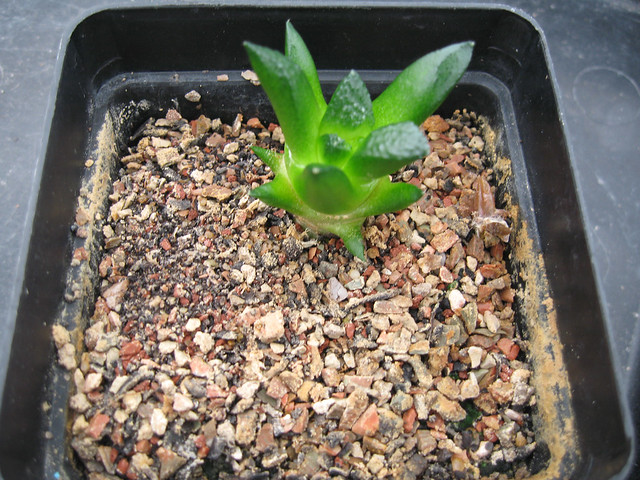
I have never visit the habitat of Ariocarpus but Ariocarpus make many seeds, 50 ~100 seeds are in a fruit.
I think the environment of habitat is too hard for Ariocarpus seedlings and difficult to reach to the flowering size.
As the result, Ariocarpus can make many seeds but they become CITES Appendix I species.
Frank
